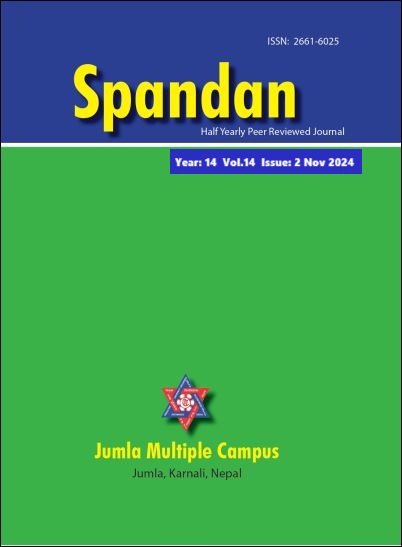Harmony and Conflict: Environmental Themes in the Village by the Sea
DOI:
https://doi.org/10.3126/spandan.v14i1.74860Keywords:
culture, conflict, ecocriticism, harmony, natureAbstract
This research paper attempts to explore the environmental theme in Desai's (2001) The Village by the Sea. The rural setting, steeped in the primal innocence of nature, makes the family members endearing and relatable. Through her masterful portrayal of their actions and emotions, the distinguished novelist reveals that poverty does not equate to moral deficiency, as some wealthier individuals, aligned with a technology-driven urban culture, might suggest. Surrounded by nature's abundance, the characters' emotions are deeply influenced, allowing them to sense the presence of a hidden divine force in various subtle ways. Their faith arises naturally from the depth of their feelings rather than from the intellectual eschatological debates scholars engage in within the confines of their drawing rooms. Through the tale of a struggling family in a small Indian town, Anita Desai's (2001) novel examines the fragile balance between nature and human life, emphasizing both harmony and conflict. The story offers a complex perspective of how these interactions impact the villagers' lives, and the environmental concerns are intimately linked to the social and economic struggles that the protagonists encounter.




